Nagoya Science Museum: Discover Your Own Pokemon!
Attention aspiring Pokemon professors! Prepare to engage in the latest Pokemon research project at the Nagoya Science Museum’s special exhibition, “Pokemon Lab: You do it! You discover!”.
Though it may seem a bit of a stretch to justify the existence of a Pokemon exhibit within a science museum, it’s actually a fun and interesting way to explain scientific processes to younger children. It encourages investigation, data collection, and critical thinking. Even older “children”, can enjoy the exhibit for nostalgia’s sake, and perhaps learn some new data as well.
Become a Pokemon Professor
Pokemon professor hopefuls, young and old alike, are invited to try to identify the Pokémon contained within their PokeBalls by piecing together clues using the scientific method at this exciting exhibit. Choose from three PokeBalls, a regular PokeBall, a Great Ball, or an Ultra Ball, and embark on your adventure of discovery. Younger, less experienced Professors-in-training should opt for a PokeBall, while true Pokémon experts should up the ante by selecting an Ultra Ball.
Identify Your Pokemon!
The exhibit hall features a total of 12 stations, each providing different information about the mystery Pokemon, from height and weight, to preferred natural habitat and footprint. As an aspiring Pokemon professor, you must choose four of these stations and enter your PokeBall into the machines. The machines will then offer information, but be warned: you may have to work a bit to get the data! Using the collected evidence, you will then attempt to guess which Pokemon is contained within the PokeBall.
Identifying Pokemon: How it Works
On my own visit to the exhibit, I selected an Ultra Ball. I figured that, having played the video game series since 1996, I should be able to handle the challenge. I was given a book with small glimpses of potential candidates for my mystery Pokémon, and then sent on my way!
The first station I chose information on the weight of my Pokemon. My mystery monster seemed to be quite light, at only 10.8 kg.
Second, I proceeded to a large machine that promised to show my Pokemon’s outline. But I wasn’t given the information so easily… In order to reveal the outline, I had to “power up” an electricity generator by jumping on a platform as fast as possible within a short time period. This was quite tough, but I managed to create enough light to show a small, canine figure.
I was getting closer to discovering the truth, so I set off to the third station, an aerial view machine, which showed my Pokemon as it might look if you look down on it from the sky. Again, I saw a small canine, but I noticed it has a very short, stubby, and pointed tail. Hmm… Getting even closer!
Lastly; I placed my Ultra Ball on my final choice of station, the habitat identifier. A screen flashed with an image of rocky, mountainous territory with high temperature. Therefore, my Pokemon was very light, a small canine, has a short, pointed tail, and lives in a hot volcanic territory… Could it be Houndour? Just before the exit, a number of Pokemon encyclopedia were scattered for guests to browse and confirm their selection. I look at Houndour’s page, and sure enough, my collected data matched the data in the book. I headed to one final machine right at the exit. After a few moments, a picture of Houndour flashed on the screen. Eureka!
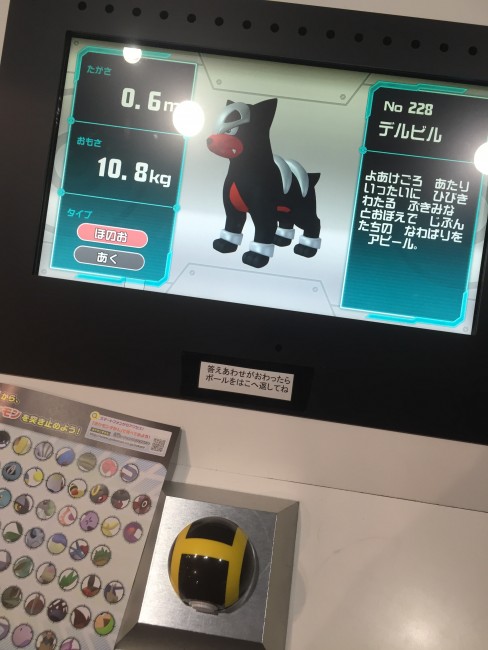
After the adventure, I was greeted by a friendly staff worker who handed me a small paper with a code for obtaining my very own special event Johto starter in the Nintendo DS games.
Come see the Exhibit!
If you are interested in seeing this exhibit for yourself, it will be on display at the Nagoya Science Museum from 12/23, 2015 to 4/6, 2016. Afterwards, the exhibit will move to Osaka.
Now… Off to the lab, professors!
Pokemon Lab, Official Information
Name: Pokemon Lab: You do it! You discover!”
See the website for future locations, dates, and prices: http://pokemonlab.jp/
Note: This exhibition has ended on September 4th, 2016.
[cft format=0]
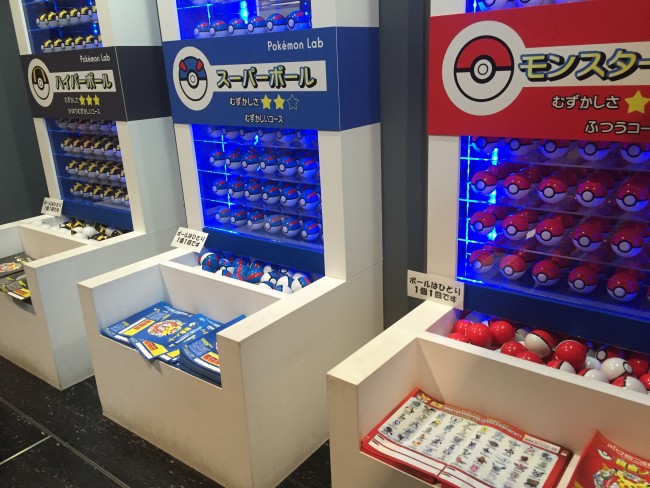
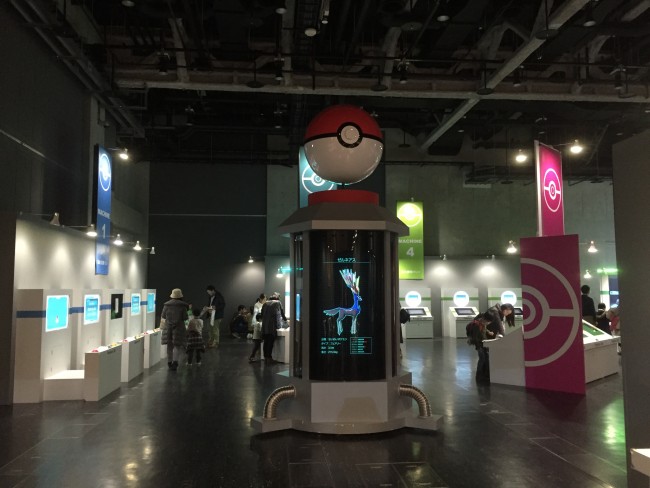
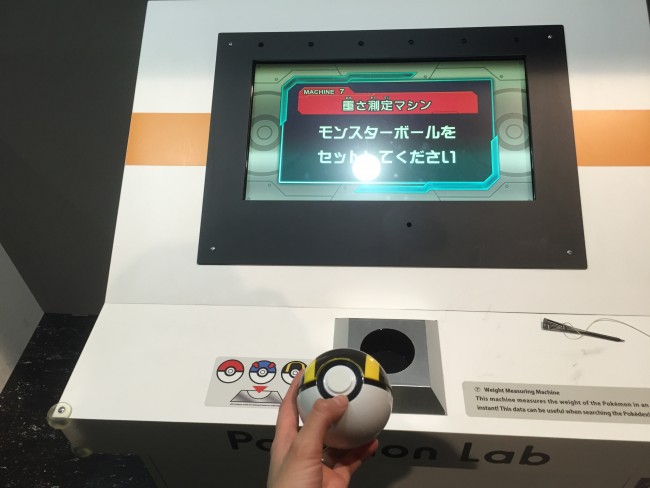

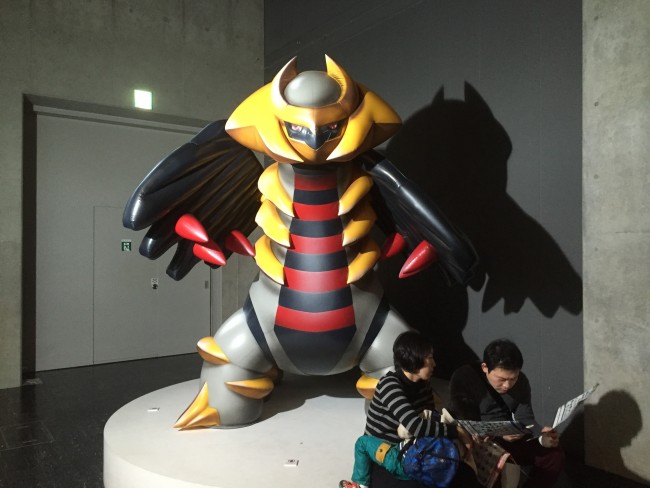

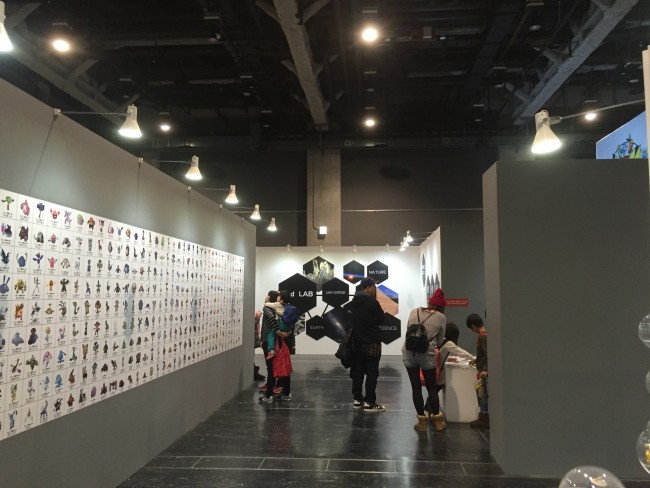
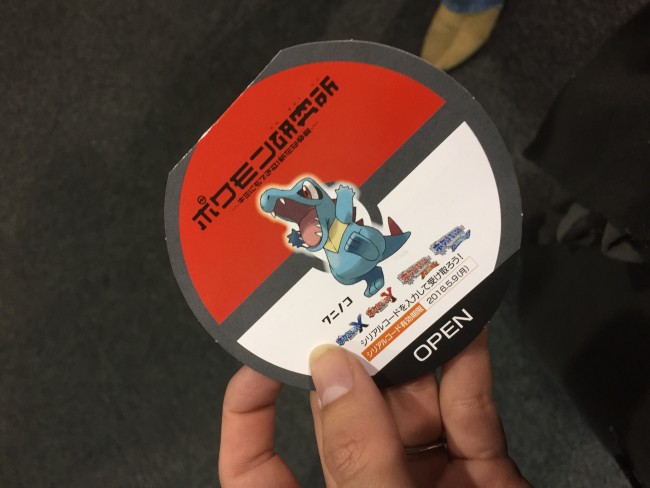


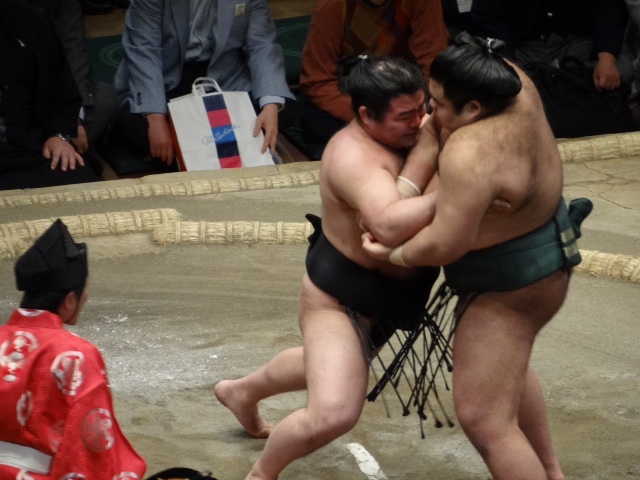


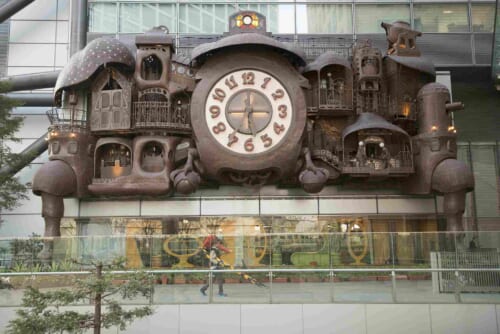




No Comments yet!